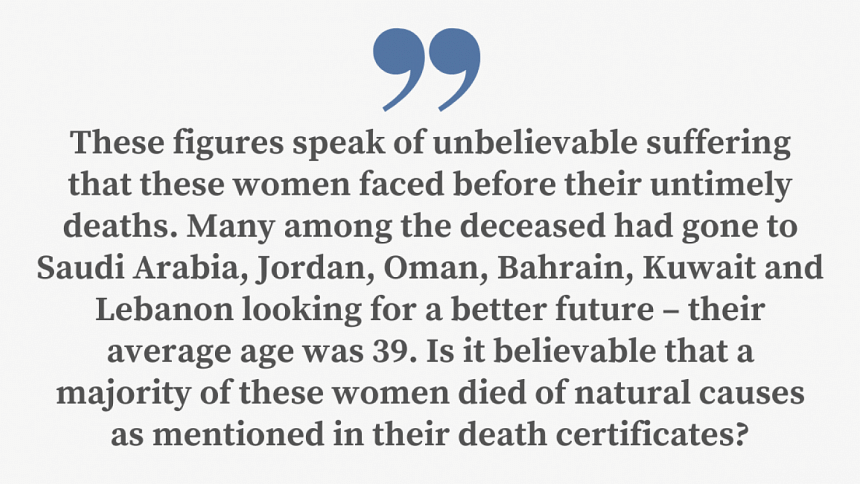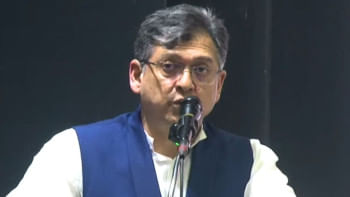Protect women migrant workers from abuse

It is a painful and shameful revelation that some 709 women migrant workers have died in different countries in the last five years (from 2017 to 2022). According to a report by Bonik Barta, after analysing the death certificates of the 691 workers arriving by October 2021, around 69 percent of the deaths were found to be due to "natural" causes like illness, while 31 percent were due to "unnatural" causes like suicides and accidents. In case of Saudi Arabia, suicides accounted for 24 percent of deaths.
No wonder then that around 48 percent of families of these women do not believe the causes mentioned in death certificates, because no autopsy was done after their bodies arrived in Bangladesh. A study by the Refugee and Migratory Movements Research Unit (RMMRU), which interviewed these families, has revealed this heart-breaking picture. These women, who mostly worked as domestic workers, were in contact with their families; they talked about the harsh conditions in which they worked, including inhuman working hours, physical, mental or sexual abuse, etc. In 2019, the dead bodies of 130 women migrant workers came to Bangladesh; 24 of them had apparently died by suicide.
These figures speak of unbelievable suffering that these women faced before their untimely deaths. Many among the deceased had gone to Saudi Arabia, Jordan, Oman, Bahrain, Kuwait and Lebanon looking for a better future – their average age was 39. Is it believable that a majority of these women died of natural causes as mentioned in their death certificates?

We demand that our government conducts a proper investigation of all these deaths – both "natural" and "unnatural". It is reprehensible that while we eulogise the remittances earned by migrant workers, many among them are dying at young ages and under suspicious circumstances, but we do not even bother to find out the reason. Greed for foreign exchange has led to such moral depravity whereby we gleefully send our workers abroad without even finding out what kind of environment they are going into. Often, they are trapped, their phones are taken away, and they have nowhere to go. Some resort to suicide while others die slowly because of deprivation, lack of medical care when they are sick, or other forms of abuse at the hands of their employers.
It is absolutely incumbent on our government to ensure the rights of these workers, especially women workers, who are even more vulnerable to abuse. Remaining silent for fear of offending host countries is not acceptable. Our government must take effective measures to stop this gross violation of human rights. The first step has to involve a thorough investigation to find out the real cause of death of each of these women migrant workers. Engaging and holding the host countries accountable, as well as directing our embassies abroad to provide support to these women, must follow.


 For all latest news, follow The Daily Star's Google News channel.
For all latest news, follow The Daily Star's Google News channel. 









Comments